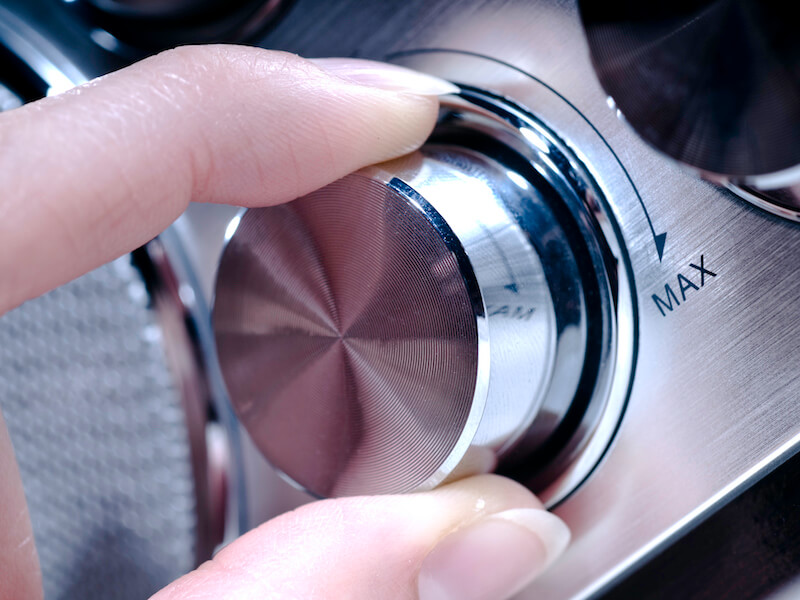
Recognizing when you require some medical advice is normally pretty easy. When you break a bone, for instance, you know you should go to the doctor (or the emergency room, depending on the scenario). With situations like this, simply “toughing it out” isn’t a possibility. At least, not for very long (especially if you want your bones to mend themselves correctly).
It isn’t always that obvious in terms of hearing aids, however. Hearing loss typically progresses really gradually over time. That means it isn’t always easy to know when you may need to begin wearing hearing aids or to delay seeking treatment you know could be beneficial.
So watching out for signs that your hearing may be going is a good plan. It’s likely time to call us for a consultation if you do notice any.
Hearing loss and hearing aids
Hearing loss is primarily managed with hearing aids. But everybody who has some level of hearing loss won’t automatically need hearing aids. Hearing aids won’t always be beneficial in cases of mild hearing loss. Consequently, we may want you to wait before starting to use them. It’s also possible that we could advise you to only use your hearing aids when you’re in particular situations.
In other words, the threshold for requiring hearing aids is not always a diagnosis of hearing loss.
But in many cases hearing aids will be the best answer. Many individuals won’t get their hearing loss diagnosed until it becomes more severe because hearing loss develops slowly and often goes undetected for a while. But if you come in for a hearing exam regularly, you might be able to catch your hearing loss early, and, because of this, you may not need hearing aids immediately.
And if that’s the situation, you’re most likely thinking: how can I tell if I need hearing aids?
You need hearing aids if you detect these signs
Hearing loss is one of those conditions that can cause immediate communication difficulties. The funny thing, though, is that you don’t always understand that those communication obstacles are due to hearing loss. So, at what point will a hearing aid help?
Look out for these indicators:
- You can’t understand people on the phone: Even the best phone speakers have a habit of flattening a voice. That can make it tough to understand, particularly if you have hearing loss. It can be very challenging to hear voices as an outcome of the loss of these frequencies.
- You listen to the radio or TV at high levels: If you’re always turning the volume up on your television or radio or smartphone, it might be the result of hearing loss. This is especially true if you keep turning that volume knob higher (and even more especially true if the people around you complain about how loud your media is).
- You have problems understanding what people are saying: Many individuals don’t think they have hearing loss or need hearing aids because the total volume they perceive seems fine. But the thing about hearing loss is that specific frequencies of sound usually go before others. Which means that the vast majority of sounds might seem normal but things in the high frequencies (like certain vowels) will be distorted. This could cause you to have a tough time making out what people are saying.
- You have a tough time following conversations in noisy places: When people ask, “What are the signs of hearing loss?”, this one almost always comes up. If you have difficulty hearing conversations in noisy places, that’s often a sure sign that you have hearing loss. This happens because your ears aren’t receiving as much information as they used to, and your brain isn’t really capable of filling in the gaps as easily. As a result, there’s a lot of muffled conversations.
So what should you do?
When you break your leg, it’s clear cut what to do: you go see the doctor! But what do you do when you begin to notice the symptoms of hearing loss? What degree of hearing loss calls for hearing aids? That isn’t a very easy answer but you should schedule an appointment with us for a hearing assessment if you begin to detect any hearing loss symptoms. We will be able to let you know how serious your hearing loss is.
And if you do wind up needing hearing aids, a hearing test will help identify the best device for your hearing needs. This means you’ll be able to get back to spending quality time with your friends and family, you’ll understand your grandkids when they call you on the phone, your co-workers at your morning meeting, and your friends at happy hour.
Contact us to schedule your hearing test, we can help you recognize if you’re suffering from hearing loss.
